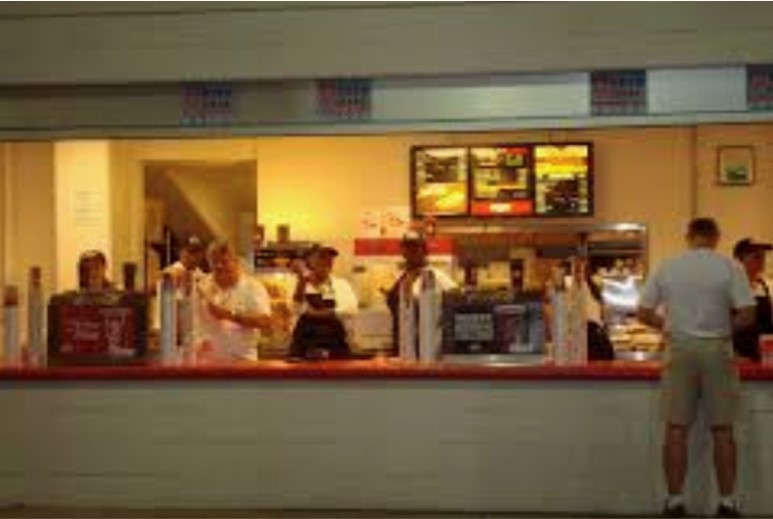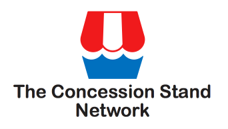
The Concession Stand: The college/university “Concession Stand” is an important revenue generator for the on-campus sports programs. There possibly can be a number of concession stands on a single campus that are placed in different sports venues.
The Conzumable Incubator has a complete module system that links the on-campus food service locations to incubator models ideal for college campuses nationwide. The Conzumable Incubator is helping create and launch the Concession Stand Network which is a new concessions industry incubator (www.ConcessionStand.net).

Related Trade Associations
911 Kingsbridge Terrace
Mount Airy, MD 21771
206-440-9203
www.nacc-online.com
University Food Services (NACUFS)
2525 Jolly Rd., Ste. 280
Okemos, MI 48864-3680
517.332.2494
www.nacufs.org
3 Boar’s Head Lane, Suite B
Charlottesville, VA 22903
(434) 245-8425
www.nacas.org/
One Dupont Circle, NW Suite 700
Washington, DC 20036
202.728.0200
www.aacc.nche.edu
P.O. Box 5043
Bloomington IN 47407-5043
513-755-0112/812-369-4393
www.sportsrd.org
35 East Wacker Dr., Ste. 1816
Chicago, IL 60601
312.236.3858
www.naconline.org
Team Play
Handling concessions in-house offers certain side benefits, such as partnerships among departments, that create an all-round stronger team, managers and directors note. “When the weather dictates a menu change, it really helps if the dining halls can produce 500 gallons of hot chocolate and move it over to the stadium,” says Flaherty.
The connection also pays off when dining services can provide culinary staff for luxury box catering, and concessions has the ability to work closely with the onsite accounting office and laundry services, he adds.
One of the most important relationships to foster is with the athletic department, says Stanford’s Taherian. It allows both organizations to partner in achieving common objectives.
Traulsen agrees, noting that, “Often, whether the concessions business remains in-house or gets outsourced, depends on the opinion of the athletic director.”
BYU’s Black says that whether or not the concessions are run by a management company or are self-operated, it’s crucial that each party knows they are part of a team whose goal is to make the whole program successful.”
For instance, when the concessions department puts popcorn coupons under the seats, uses the team mascot to toss out free ice cream containers into the crowds, and generally helps out with promotions, “athletics loves it,” Black says.
In turn, the athletic department is more amenable to working out arrangements for games that might not pull in as many fans and thus won’t generate the sales realized with football. For instance, in 2004 Black asked athletics to cut their royalty in half on concessions for Olympic sports, while he lowered food prices 25 percent.
“Sales more than doubled; athletics made as much money as before, and we broke even on the greater volume,” he says. “Now, athletics feels we really care about their success. So when remodeling at the stadium comes up, they’ll actually call to say, ‘how will this affect you guys?’ It’s a nice partnership.”
Source: www.food-management.com/archive/college-concessions-onsite-playbook

